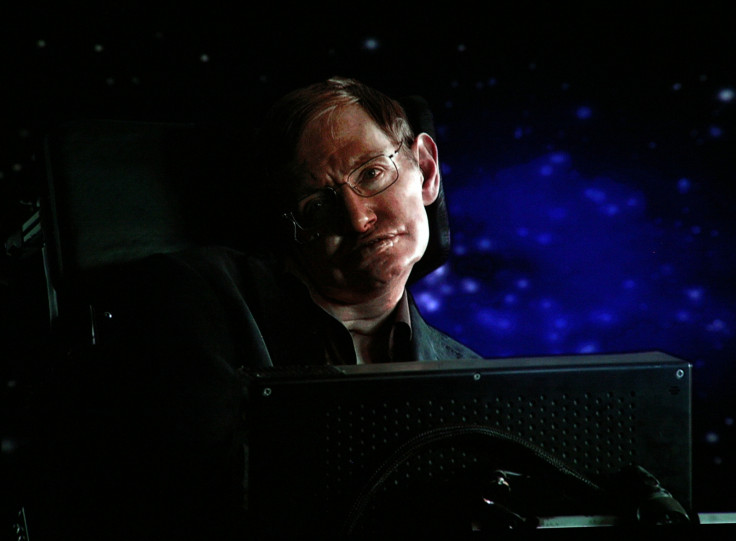God Particle Could Destroy Universe, Warns Stephen Hawking
Scientist warns that Higgs boson particle could cause space and time to collapse

The 'God Particle' discovered by scientists in 2012 has the power to destroy the universe, Professor Stephen Hawking has warned.
The physicist said that at very high energy levels the Higgs boson could become unstable, causing a "catastrophic vacuum decay" that would cause space and time to collapse.
The possibility of this happening is extremely unlikely, he stresses, as scientists do not yet have a particle accelerator large enough to create such conditions.
He makes the comments in a new book Starmus: 50 Years of Man in Space, a collection of essays by scientists and astronomers.
"The Higgs potential has the worrisome feature that it might become megastable at energies above 100bn giga-electron-volts (GeV)," Professor Hawking writes.
"This could mean that the universe could undergo catastrophic vacuum decay, with a bubble of the true vacuum expanding at the speed of light.
"This could happen at any time and we wouldn't see it coming."
Accidental armageddon won't be soon
Hawking adds that this is unlikely to happen in the near future.
He said: "A particle accelerator that reaches 100bn GeV would be larger than Earth, and is unlikely to be funded in the present economic climate," he notes, sarcastically.
He said that the potential of the Higgs boson particle to destruct at high energy levels could offer important insights, as it "places important constraints on the evolution of the universe".
Particle accelerators increase the speed at which sub-atomic particles travel using magnetic and electrical fields then collide them. The most famous is the Large Hadron Collider (LHC) at Cern, Switzerland.
They are used so scientists can spot tiny particles which are detached in the collisions.
The Higgs boson was discovered in Cern's LHC in Switzerland in 2012.
Debris that unexpectedly appeared after particle collisions matched the predictions of British scientist Peter Higgs in the 1960s.
The Higgs bosun particle is believed to be responsible for giving matter its mass, but scientists do not yet fully understand its role.
© Copyright IBTimes 2025. All rights reserved.






















